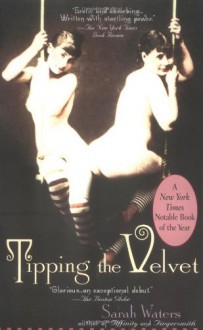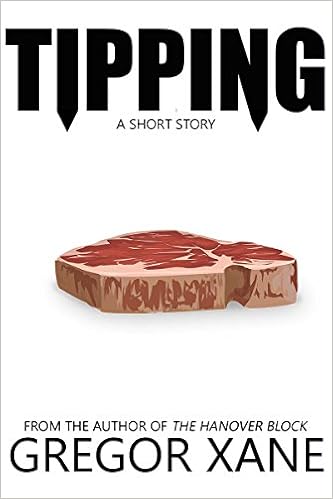
This book is a post-apocalyptic novel set in the near future (2024 to be precise) in the UK. Although some of the specific locations are fictional, the author explains in a note at the end where the original inspiration for some of them came from, and indeed, some are real. The setting is one of the great achievements of the novel. For those of us who live in the UK, it is all too real and familiar (with the shops, facilities, political and social organisation, TV programmes, food, language, and even typical behaviours of the population) and that makes it, in many ways, scarier than novels that are set either in imaginary locations, or in vague settings, that in their attempt at representing everywhere sometimes become too unfamiliar and alienating. Another one of the things that differentiate this novel from others in the genre (and I’m aware that the author writes in many different genres and is mostly interested in the stories rather than the labels attached to them) is its attention to characters. Whilst many post-apocalyptic novels spend a lot of the time, either on the cause and the development of the said apocalypse or on descriptions of the new world and post-apocalyptic society, sometimes the characters are little more than superheroes that had not discovered yet they had special survival skills, and spend most of the novel demonstrating us their awesomeness. Although I am not an expert in post-apocalyptic novels, I have read some (the one I best remember in recent times is Station Eleven by Emily St. John Mandel) and I’d dare to say that some readers who might not usually read novels in this genre would enjoy this one.
The time frame of the story is somewhat fragmented. The novel starts plunging us in the middle of the action, as the two main characters, Vicky and her teenage daughter Lottie, are escaping from their town and the enforced isolation and transportation its inhabitants face due to the epidemic. The novel (mostly narrated in the first person by Vicky) then goes back to explain how the situation reached the ‘tipping point’ of the title. The first person narration makes us experience the story close and personal, whilst at the same time limiting the amount of information we get to what Vicky can get hold of. Although her partner, Dex, was well-informed and had been warning her about the world governments attempts at gathering information about the population through social media with shady intent, she always dismissed his concerns and now realises he might have been right all along. (As I have included the description of the novel and want to avoid spoilers, I won’t discuss the whole plot in detail, but let’s say population control is taken to the extreme).
As I have commented more than once regarding first-person narrations, there are readers who like them more than others, and often it depends on how we feel about the narrator. I must confess that on many occasions I found Vicky very annoying, especially at the beginning of the story. She refuses to believe anything that falls outside of her comfort zone, as if she was wearing blinkers; she is uncritical of official versions of the truth, despite her partner’s attempts at enlightening her. She has little confidence in herself (even when she acknowledges that she has brought up her daughter alone and has achieved much despite her difficult circumstances), and places a lot of responsibility and trust in Dex (although she does not share his ideas or even listen to him at times), her partner for the last six years. He is a fair bit older than her, savvier, and seems to be the one who has to make the decisions and who is expected to come up with answers and solutions to all the problems. (I thought the fact that when they moved they only kept a car, and now he’s the only one to drive and she has lost confidence in her driving seems to encapsulate their relationship). Of course, we do not know him directly, as we only have Vicky’s memories of him, and we learn later those might have been rose-tinted. From the little snippets we get, I found their relationship a bit difficult to understand, as they don’t seem to have much in common (as some of the other characters note, including her daughter) and we learn that she was quite naïve about him. But she grows and matures through the novel, and although, thankfully, she does not become Wonder Woman, she proves herself resourceful and capable, she dares to try new things and does whatever is necessary to ensure her survival and that of her daughter. I am curious to see how the character will develop in the coming books and also to find out what role she will ultimately end up playing (as the narration seems to be addressed at the readers at times, rather than just being something she is writing exclusively for herself).
I really liked Lottie. She is a credible teenager, determined where her mother is hesitant, flexible and adaptable while remaining a teenager, naïve at times, eager to discover who she is and what she likes, and to fight for her individuality and independence. She brings much of the humour to the story and the relationship mother-daughter is a joy to read (apocalypse or not).
There are some chapters told in the third-person by an omniscient narrator who gets into the head of different characters, some that will evidently play a part in future instalments of the series, and others that provide a clearer background and explanation of how and why everything developed.
The writing is fluid and flows well. The first-person narration is convincing and the reported speech patterns of the different characters are distinctive and help create a clear picture in the reader’s mind. The pacing is steady, at times faster (especially when there is an acute threat to deal with) but at others it slows down to allow for some moments of contemplation and reflection.
Although I said before that the story is not focused on the science behind the illness or on a blow-by-blow account of the spread of the epidemic, that does not mean we do not gain insight into the destruction the virus causes or how it results in a collapse of the usual niceties of civilisation, but rather that we see these on a small scale and from a human-sized perspective, that, if anything, makes it scarier, as it is easier to visualise how this could happen around us. And, as quite a few readers have commented, one feels very tempted to withdraw completely from social media after reading this book, so convincing its plot is.
This first novel in the Renova trilogy sets up the characters and the background situation for the rest of the series. I am intrigued by the number of diverse characters who are set to come together at Lindisfarne. Holy Island, a place I have visited, is fascinating, but not very large for such a crew of people, and it is not somewhere where one can easily hide or even escape from. The confluence of so many people with such different expectations and agendas is bound to be explosive, and I can’t wait for the next book, that luckily should be out in September 2017.
I recommend this novel not only to readers of post-apocalyptic literature, but also to those who enjoy stories that question our beliefs, our society, our values, and that are interested in people, their relationships, and the way they see themselves and others. I am sure this series will go from strength to strength and I look forward to the next two books.
Thanks to the author who kindly offered me an ARC copy of this novel that I freely chose to review.

 Log in with Facebook
Log in with Facebook 









